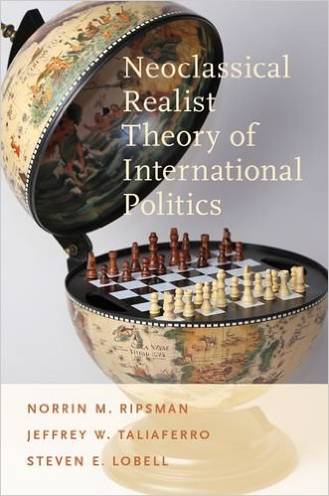
In their recent book, Neoclassical Realist Theory of International Politics, (Oxford University Press, 2016) Jeff Taliaferro and his co-authors Norrin M. Ripsman and Steven E. Lobell contend that neoclassical realism is more than simply the logical extension of structural realism (also called neorealism).
Rejecting the artificial distinction that Kenneth N. Waltz draws between theories of international politics and theories of foreign policy, they make the case that neoclassical realism can offer explanatory and predictive theories of phenomena ranging from short-term crisis-behavior, to foreign policy, to patterns of grand strategic adjustment by individual states up to long-term patterns of international outcomes and structural change.
They explicate the independent variable, clarify and organize the unit-level intervening variables, and specify the full range of potential dependent variables for neoclassical realist theories.
Jeffrey W. Taliaferro is an Associate Professor of Political Science at Tufts University, and currently a visiting researcher at the Nobel Institute in Oslo. His research and teaching focus on security studies, international relations theory, international history and politics, United States foreign policy, intelligence and U.S. national security. He earned a bachelor's degree in history and political science from Duke University and a Ph.D. in government from Harvard University. Professor Taliaferro is the author of:
- Balancing Risks: Great Power Intervention in the Periphery (Cornell University Press, 2004) and
- co-editor (with Steven E. Lobell and Norrin P. Ripsman), of Neoclassical Realism, the State, and Foreign Policy (Cambridge University Press, 2009) and of
- The Challenge of Grand Strategy: The Great Powers and the Broken Balance between the World Wars(Cambridge University Press, 2012).
His articles have appeared in the journals International Security, Security Studies, and Political Psychology.





